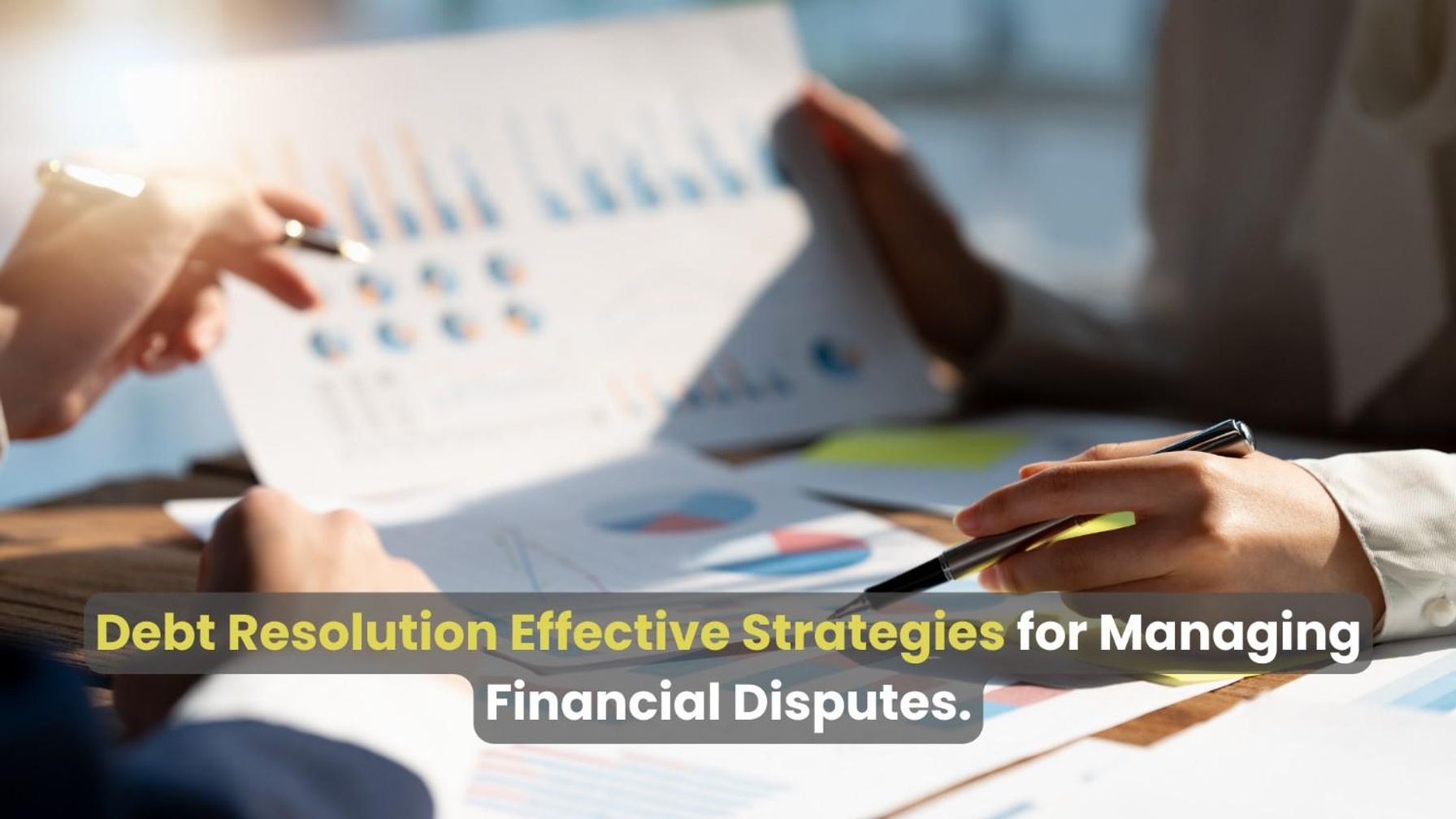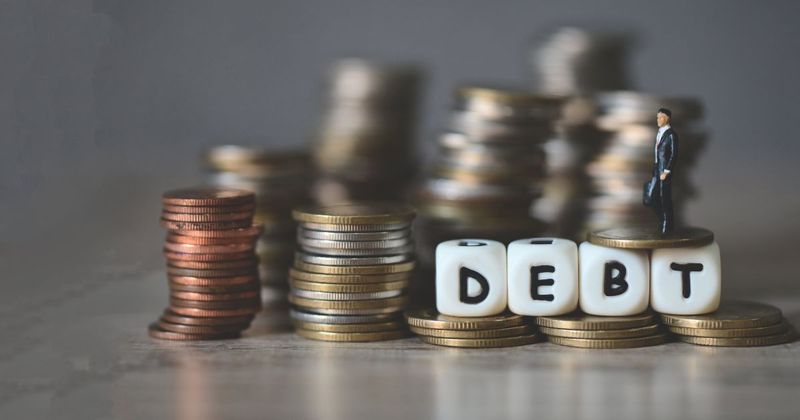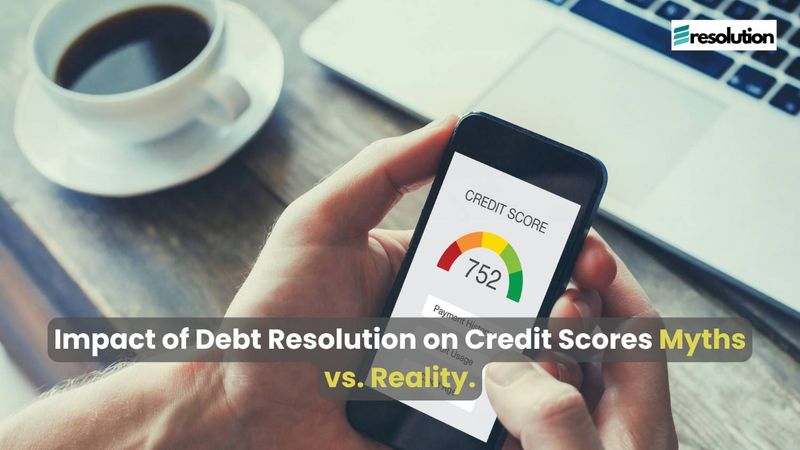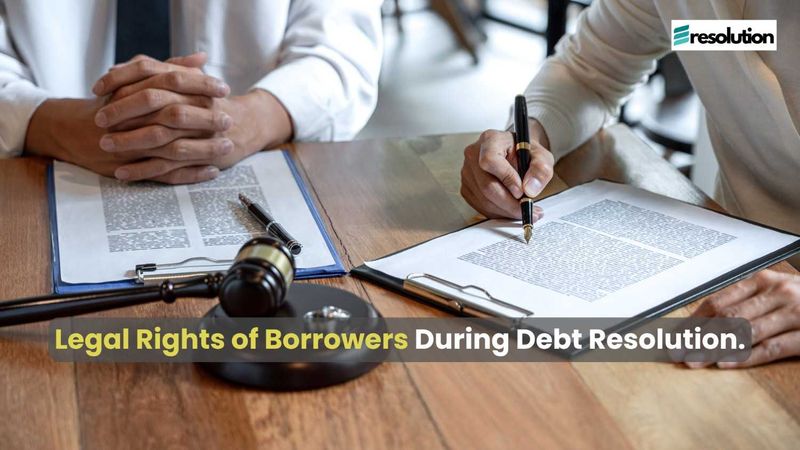When financial disputes arise, the stress can be overwhelming. Many people find themselves facing the daunting challenge of managing debt, whether from credit cards, student loans, or medical bills. Understanding debt resolution and the various strategies available can help you regain control of your financial life.
Debt resolution isn’t just about paying off what you owe—it’s about finding ways to manage and settle disputes efficiently, allowing you to move forward without the heavy burden of unresolved financial issues.
Common Types of Debt
Before diving into resolution strategies, it’s essential to understand the types of debt that might be causing disputes. These are the most common categories:
Credit Card Debt
Credit card debt tends to be high-interest, which means it can quickly spiral out of control if left unchecked. It’s also one of the most common types of debt people face today.
Medical Bills
Unexpected medical expenses can put people into debt even when they have insurance. Medical debt is often overlooked, but it can significantly affect your credit if left unpaid.
Student Loans
While they’re often considered “good” debt, student loans can become a heavy financial burden, especially when interest accrues over time.
Personal Loans
These loans are typically unsecured and come with higher interest rates than secured loans, which can make them harder to manage over the long term.
Why You Need a Debt Resolution Strategy
Unresolved debt can lead to a range of problems. Not only does it affect your credit score, but it also creates emotional and mental stress, impacts your lifestyle, and sometimes even jeopardizes your ability to get future loans.
The Impact of Unresolved Debt
Failing to manage debt disputes effectively can lead to collection calls, wage garnishments, or even legal action. Without a strategy in place, the stress and financial instability can accumulate over time.
Benefits of Debt Resolution
A good resolution strategy can help you:
- Reduce financial stress
- Improve your credit score
- Regain control over your finances
- Achieve long-term financial stability
Debt Resolution vs. Debt Settlement
Many people confuse debt resolution with debt settlement, but they are different processes.
Key Differences
- Debt Settlement typically involves negotiating with creditors to pay less than what you owe, often with a lump-sum payment. While this can reduce the amount you need to pay, it can also have long-term negative effects on your credit score.
- Debt Resolution encompasses a broader range of strategies to help manage and reduce debt in a sustainable way. It aims to find a win-win solution for both the debtor and the creditor.
Pros and Cons of Each
- Debt Settlement: Quick relief but can damage your credit score and lead to tax liabilities.
- Debt Resolution: More holistic and long-term but can take more time to see results.
Strategies for Debt Resolution
There are several effective strategies to consider when resolving debt disputes. The right approach depends on your financial situation, the amount of debt, and your ability to repay it.
Budgeting and Financial Planning
The foundation of any good debt resolution plan is creating a budget. By understanding where your money goes each month, you can identify areas to cut back and redirect funds toward paying off debt.
Negotiating with Creditors
Sometimes, simply talking to your creditors can yield results. Many creditors are willing to negotiate payment terms, reduce interest rates, or even forgive a portion of the debt if it means they can recoup some of their money.
Debt Consolidation
Debt consolidation involves combining multiple debts into one single loan with a lower interest rate. This can simplify payments and potentially save you money on interest.
Debt Management Plans (DMPs)
A DMP is a structured repayment plan created by a credit counseling agency. They negotiate with your creditors on your behalf to lower interest rates and set up a repayment schedule you can afford.
Filing for Bankruptcy
As a last resort, filing for bankruptcy can help you discharge some or all of your debts. However, this is a serious decision that should be carefully considered, as it significantly impacts your credit score and financial future.
Step-by-Step Guide to Resolving Debt Disputes
- Assessing Your Financial Situation Start by taking a close look at your finances. What do you owe, and to whom? Understanding the full scope of your debts is the first step in resolving them.
- Gathering Relevant Information Compile all necessary documents, such as loan agreements, credit card statements, and medical bills. Knowing the details will help you negotiate more effectively.
- Prioritizing Your Debts Not all debts are created equal. Prioritize high-interest debts first, such as credit cards, before tackling lower-interest loans.
- Communicating with Creditors Reach out to your creditors early on to discuss your situation. Open communication can often lead to more favorable outcomes.
- Choosing a Debt Resolution Method After evaluating your options, choose the debt resolution method that suits your financial situation and goals.
The Role of Professional Debt Counselors
If you’re feeling overwhelmed, a debt counselor can help guide you through the process. They can provide you with practical advice, help you negotiate with creditors, and create a debt management plan that works for you.
When to Seek Professional Help
If your debts are unmanageable, or you’re facing legal action from creditors, it may be time to consult a professional.
How Debt Counselors Can Assist You
Debt counselors can help you sort out your financial obligations, provide a clear path toward resolution, and give you the tools to stay on track.
Pros and Cons of Debt Resolution
Benefits of Resolving Debt
- Reduces stress and financial pressure
- Helps improve your credit score over time
- Enables you to regain control of your finances
Potential Drawbacks to Be Aware Of
- Some strategies, like debt settlement, can negatively affect your credit score.
- Bankruptcy should only be considered in extreme situations, as it has long-term consequences.
How to Avoid Future Debt Disputes
Once you’ve resolved your current financial disputes, it’s important to create habits that will prevent future problems.
Building Healthy Financial Habits
Start by budgeting, setting up an emergency fund, and living within your means. These habits can protect you from falling back into debt.
Emergency Savings and Budgeting
Having an emergency fund can prevent you from going into debt when unexpected expenses arise, while a well-managed budget ensures that you’re not overspending each month.
Conclusion
Debt resolution is not a one-size-fits-all solution, but with the right strategy, you can regain control of your finances. Whether you choose debt consolidation, negotiation, or even bankruptcy, the goal is to resolve your disputes in a way that minimizes the impact on your financial future. With determination and the right support, you can pave the way toward financial freedom.




